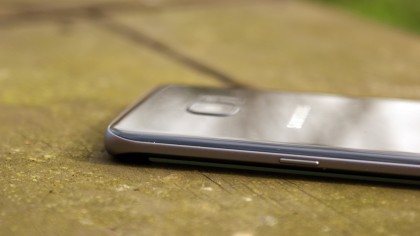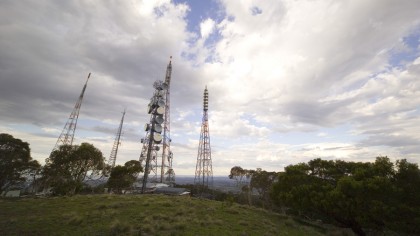How the new 5G manifesto will affect your future phones, cars and internet
And why you should be concerned about net neutrality

We might not have much time for Europe these days, if massive self-destructive referendums are anything to go by, but while Britons may disdain the European Union it is still doing the important work of governing a continent.
Just this week the European Commission published what it calls a "5G manifesto" - a document which describes the agreed intentions of many of the major player who over the next few years want to bring 5G to us consumers.
We should probably listen too, as it's signed by the CEOs of BT (and therefore EE, following the former's recent acquisition of the latter), Vodafone, Telefonica (aka O2) and Hutchinson Whampoa (aka Three) - as well as many other European telecoms operators. In other words - it's a really good indication of what the networks are expecting 5G to be like.
And it makes for surprisingly interesting reading, as it reveals some of the concerns, interests and challenges which the networks believe we'll face when we do finally get 5G. Here's all of the key points - and what we think it might mean for you when you pick up your iPhone 9 or Samsung Galaxy S11 in a few years time.
Roll out by 2020
Perhaps the biggest headline is that the EU wants 5G services to be up and running by 2020. But this is easier said than done.
Before Apple and Samsung can start cranking out phones that support 5G, and before networks can start building new towers, the industry needs to get together to agree on a common set of standards to ensure that technology is interoperable and that the spectrum that is chosen for 5G is harmonised across Europe (so that 5G in one country doesn't interfere with the TV signals in another, and so on.)
According to the document, the signatories expect to see independent trials of various 5G technologies prior to 2018 - and then in 2018 the 3GPP, the organisation that agrees the standards internationally, will finalise the rules on what makes a phone officially "5G".
Get daily insight, inspiration and deals in your inbox
Sign up for breaking news, reviews, opinion, top tech deals, and more.
So it won't be until then that we'll know for sure what speeds and ranges 5G phones will be capable of.
EU investments
You might be wondering why the European Union cares so much about 5G. The answer is because it will form a core part of what it calls the "digital single market" - the plan to break down barriers for digital products and services between countries.
By acting to harmonise digital rules and regulations between 28 (well, 27 soon…) member states, the thinking is that it will make this easier - resulting in fewer barriers to doing business internationally, and better deals for consumers who will have more choice.
As such, the manifesto calls for the EU to not just talk the talk on 5G - but to put its money where its mouth is too, and directly investing European cash in 5G technology.
The signatories want massive billion Euro grants for large scale demonstrations of what 5G could do, and also a "5G Venture Fund", that would see the EU invest in start-up companies that are experimenting in 5G technology, in a bid to accelerate any technological advances.

Connected cars and other devices
What's really interesting is that the document reveals that a wide range of different usage cases are being considered as 5G technology is designed and built.
So the specification is being designed with not just our ability to play Pokémon Go in mind, but also for newer, connected devices. For example, the needs of connected cars will be considered so that future autonomous vehicles will be able to talk to each other.
Public safety, smart grids and health are also given examples of use cases, and this makes a lot of sense too as increasingly we're going to see "critical" infrastructure use mobile networks to transmit data, rather than fixed lines. Why? Because 5G could make it cheaper than installing fibre-optic cables for everything from traffic lights to electricity substations.
And ultimately what this means is that if we've got all of this important stuff hooked up to our mobile networks, there's a lot more at stake if there's ever any problems. So the 5G infrastructure needs to more resilient - so that the lights will stay on.
Making It Easier to Build Transmitters
One of the biggest challenges for networks is providing wide and consistent coverage to millions of people simultaneously, and building a network that is capable of coping with thousands of people suddenly descending on a given area (such as in a music festival or a stadium).
And it's because of this that in large cities, transmitters are packed in all over the place - often on an almost street-by-street basis in the most densely populated areas. To make this easier, the networks want to slash the red tape to make building these necessary transmitters even easier.
The manifesto proposes the "removal of deployment barriers", such as laws that guarantee the rights of mobile operators to build new infrastructure and reducing the taxation on sites and antennas - so that keeping the network together costs less.
It also calls for the EU to harmonise rules around electromagnetic field emissions, so that there is only one set of rules rather than 28 different ones.
Net Neutrality (or lack of)
And finally, what will no doubt be the most contentious point in the manifesto: Net Neutrality.
This is the idea that service providers should be allowed to discriminate in terms of what services you can access, or can charge different prices for different levels of access.
For example, a profiteering ISP could restrict the bandwidth Netflix can use to send videos to users, unless Netflix pays a hefty fee to the network.
It's broadly seen as an utterly terrible idea by most commentators - because it would hand even more power to the networks and would risk making the internet less competitive for other companies. And what's a little worrying about the 5G manifesto is that it puts the ability to discriminate on traffic - what it calls "network slicing" - at the heart of the proposals.

Perhaps this is unsurprising given the document was written by the service providers, but their argument isn't without any merit. For example, it argues that if 5G is to support data from critical infrastructure (see above), then it should be possible for a network to prioritise, say, emergency services data over Pokémon Go making a Squirtle appear in your neighbourhood.
It also turns the argument about networks simply using slicing to profiteer on its head. The manifesto argues that slicing would give networks more certainty on a return on investment.
In other words, if the network thinks that with a new 5G network it will be able to extract more cash then it is more likely to make the multi-billion investment needed to build the transmitters and infrastructure in the first place. So if we insist on net neutrality, we might end up waiting a lot longer for 5G coverage.
Brussels Calling
Ultimately, whether all of the proposals made in the manifesto will be adopted by the European Union remains to be seen - but this no doubt outlines several of the biggest tech-related political scraps we're likely to see over the next few years.
What's also going to be interesting is seeing how Brexit affects the 5G rollout in Britain - as one of the under-appreciated things the EU does is harmonise regulations across borders making it easier for companies to trade internationally.
So could it mean that we're still in the 4G slow lane as the rest of Europe agrees its 5G rules? Or will we decide to stick to what Europe decides anyway?